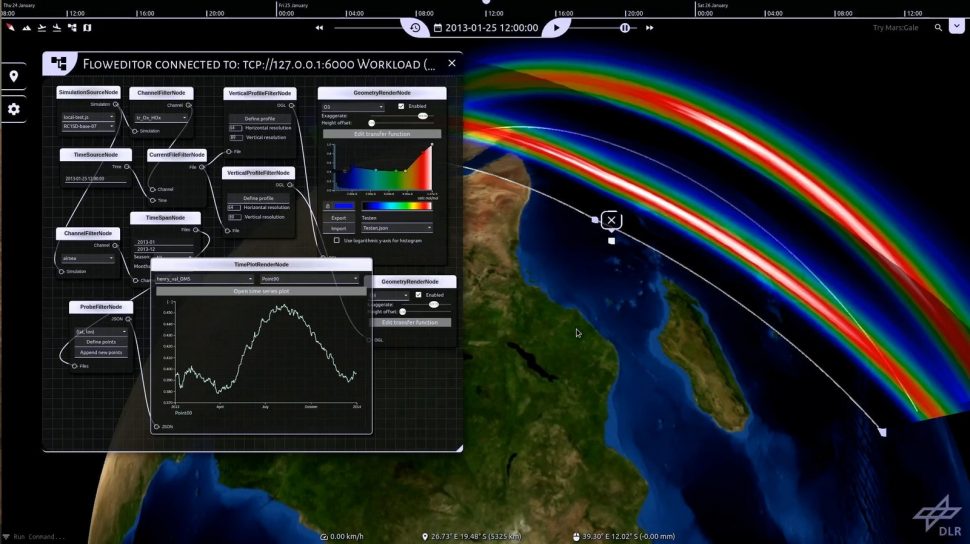IMPAC²T – Air pollution, human health, & vegetation in a changing climate
IMPAC²T is a Young Investigator’s Group funded by the FONA intiative of the Federal Ministry of Education and Research (BMBF) in Germany. It is a joined project between DLR and Helmholtz Munich in close collaboration with local authorities and further associated partners. In IMPAC²T, our overarching mission is to deliver a profound scientific understanding of the trends and drivers of ambient air pollution and its impacts on human health and vegetation in a changing climate. This understanding will enable policy makers to discuss potential mitigation options for air pollution in a changing climate. Moreover, we will scientifically investigate specific mitigation options.
To tackle this challenge holistically, an interdisciplinary team will collaborate across the duration of the project and join their expert knowledge regarding chemistry climate interactions and epidemiology.
ADAPTEX (Adaptive Erdsystemmodellierung mit stark reduzierter Berechnungsdauer für Exascale-Supercomputer)
The project ADAPTEX aims to develop an open source software framework for exa-scale ready computational fluid dynamics (CFD) simulations on adaptive grids and application in Earth system modelling. Parallel scalability of existing and future CDF applications should be improved, aiming for finer resolved spatial resolution and higher precision, as well for an overall performance. For this, ADAPTEX combines existing and optimized high performance computing libraries and extends their implementation for use on heterogeneous exa-scale compute architectures.
VisPlore – Visual Data Analysis Platform (DLR project)

The VisPlore project oversees the development of a data analysis and visualisation platform. This will involve the establishment of a distributed software infrastructure within DLR, which will enable the efficient analysis of large scientific datasets using interactive visualisation methods. One of the use cases is the analysis of global and regional climate-chemistry simulations over longer time periods. The projects aims towards an interface for in-situ visualisation in MESSy, but also towards the further development and application of methods in the field of topological data analysis, feature extraction and feature tracking.
TPChange – The Tropopause Region in a Changing Atmosphere – DFG TRR 301

Projections of climate change rely on an adequate representation of UTLS processes and their feedbacks in climate models. In the Collaborative Research Centre TPChange this will be addressed by a combination of field measurements, laboratory studies, theoretical approaches, and multiscale numerical modelling. Based on an improved understanding of relevant processes at different scales, we will develop parameterisations to improve state-of-the-art climate models. Our goal is to specify the impact of UTLS processes on composition, dynamics and ultimately on future climate and climate variability.
Earth System Chemistry integrated Modelling (ESCiMo)
Within the “Earth System Chemistry Integrated Modelling (ESCIMo)” initiative chemistry-climate-simulations are planned by the MESSy Consortium with the ECHAM/MESSy Atmospheric Chemistry (EMAC) model for special topics related to the national project of the DFG-Forschergruppe SHARP (Stratospheric Change and its Role for Climate Prediction) and the international IGAC/SPARC Chemistry-Climate Model Initiative (CCMI). These simulations will be carried out in support of upcoming WMO/UNEP ozone and IPCC climate assessments and will help to answer emerging science questions as well as to improve process understanding. To meet these scientific needs, the CCMI community with active support from SHARP scientists jointly defined new reference and sensitivity simulations.
